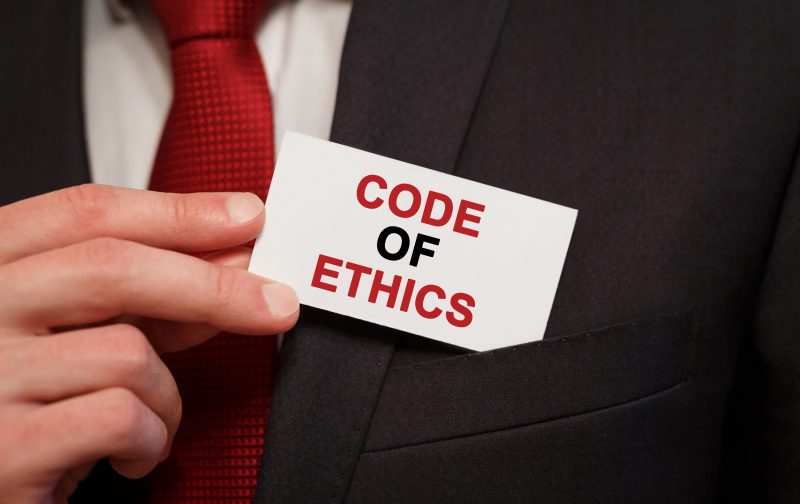
Ethical matters: Change is coming to auditing standards in Ireland
In July, the Financial Reporting Council (FRC) in London issued a consultation on proposed changes to the UK’s Ethical and Auditing Standards. It closed on September 27, 2019.
The consultation is expected to introduce revisions that will see tougher regulations on audit independence and the provision of non-audit services. Any changes that are approved will come into effect for audits of accounting periods commencing on/after 15 December 2019.
The date these changes may come into effect in Ireland is at present, unclear. Coming up to a 31 December 2019 period end, auditors are expected to be aware of the changes that may impact audits being due to be performed in 2020, before they accept or commence an assignment, so that they can properly accept or reject the audit appointment having checked the independence rules.
The aim of these changes is to place greater emphasis and focus on ethical matters and the public interest within audit firms, and to require reporting where an audit firm does not follow the ethics partner’s advice. This will be achieved by increasing the authority of the ethics partner function within audit firms.
What does this mean for Ethical and Auditing Standards in Ireland?
The IAASA has confirmed that following the FRC consultation, they will review the proposed changes and in due course, will issue a public consultation specific to Irish Standards, that will reflect the changes proposed by the FRC in the UK.
This will likely bring a change to both audit and ethical standards in Ireland.
What will the key changes be?
- A more robust, ‘reasonably informed third-party’ (RITP) test that is ‘objective’ and ‘reasonable’;
- The test would require audit firms to evaluate the effect a proposed action would have on their independence – from the perspective of public interest stakeholders;
- This test would be supported by further material, designed to encourage a more comprehensive assessment considering the spirit and letter of the standard;
- Further detailed amendments to individual standards to clarify what the auditor’s responsibilities are:
- when considering whether or not, the bodies they have audited are compliant with relevant laws and regulations
- when checking there are no material misstatements in the ‘other information’ companies include in their annual financial reports;
- Potential ban on gifts and hospitality both being received and given;
- Potential change to the definition of ‘accounting services’ where it might involve ‘playing the role of management or initiating transactions’; and an
- Absolute prohibition is proposed on the provision of internal audit services, and recruitment services to an audited entity by the auditor of that entity. And its proposed to simplify and clarify the prohibitions on the provision of Information Technology Systems.
Why would a UK change affect Irish audit standards?
Since June 2016, Ireland has had to write its own audit standards. However, they remain very similar to the FRC’s Auditing Framework as it is IAASA policy to make ‘minimal amendments to the UK framework’.
Amendments are most often only made to specify ‘Irish’ rather than ‘UK’ company law, or to remove a conflict with Irish or EU law, or differences in Irish or UK markets. In this way, whatever changes are made in the UK, Ireland is likely to follow suit.
Who writes the Irish accounting standards?
The Financial Reporting Council in London still currently write accounting standards for both the UK and Ireland. Until Brexit, the FRC will continue to write Irish accounting standards – FRS 102 being the main one. Rumour has it that the Financial Reporting Council can’t wait to get rid of FRS 105 the standard for Micro Entities, once Brexit occurs.
Post Brexit, Ireland may have to write their own accounting standards, but capacity-wise, this is a potential problem as FRS 102, for example took ten years to develop!
Support materials
There are 19 webinars on various topics, include ethics and an audit update, on our website – €45 each, or you may purchase two at the same time for €80 or five for €190.
All our webinars are accessible at any time (for 12 months from date of purchase) here.
We have also prepared, ready to use, several engagement and representation letter templates (in Word format) for many types of assignment, which help reduce misunderstandings about engagement scope and liability. These are available to purchase online (bulk purchases of 5 or more templates attract a 20% discount), please click on the relevant links.
Some latest additions may be of interest to you:
- Data Privacy and Cookie Policy template
- Audit representation letter – FRS 105
- Sale of A Business – Accountant Acting as Agent only
- Audit Exempt Company – Representation Letter – FRS 105audit representation





